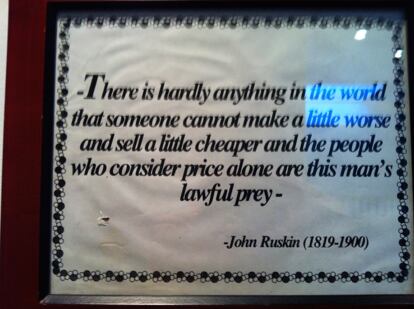The classification of supplements—otherwise known as natural medicines—as fast moving consumer goods is reshaping of the way brand marketers are positioning their products to consumers.
However, this begs the question: are natural medicines being developed to meet a price standard ahead of quality?
Is it realistic to think we can produce natural medicines containing therapeutic doses of authentic, high-quality ingredients that deliver a beneficial health outcome to the consumer, all for under A$5 per pack; manufactured, packed and ready for market?
To put this in context, let’s look at how the pharmaceutical industry works in Australia, the birthplace of my company, Network Nutrition.

Down Under, federal government subsidies of pharmaceutical medicines came close to A$10bn (US$11.8bn, or nearly US$500 per head of population) in the financial year ending June 2014—and this expenditure is trending higher each year.
The government—so ultimately the taxpayer—wears in excess of 82% of the cost of these medicines. This paints a stark contrast between the actual costs of pharmaceutical medicines compared to natural medicines.
Based on this subsidy, a prescription drug that costs the consumer A$20 would in fact bear an overall cost of A$111, with the difference funded by government subsidies. I’m sure you’ll agree there are few—if any—natural medicine products capable of demanding a recommended retail price of $111; and when it comes to natural medicines, government subsidies are nothing more than a pipe dream.
Herein lies our conundrum: we need to produce, market and distribute safe and effective, quality natural medicines that are affordable for the consumer.
Today’s buyer is sophisticated and self-educated (even if education sources vary widely, and many are unreliable), and is continually on the lookout for a bargain. The generic nature of natural medicines means differentiation is our industry’s unicorn, so the last line of defence to protect your position on the retail shelf is to differentiate your price.
And that’s how the race begins.
In Australia, where 75% of the population use some form of complementary medicine, one of the latest shooting stars has been krill oil. Never before has a product emerged, gained swift penetration and then been so savagely commoditised as is the case with krill.
Brand marketers are boasting strong volume growth whilst nursing declining revenues. What does this tell us? That we’re aggressively discounting our brands, and by doing so, taking them down a rather treacherous path. Can we continue to engage in discount warfare while simultaneously preserving the quality, safety and efficacy of the final product?
It’s conceivable that casualties could emerge as the race gains momentum. I wonder what the “bottom” in the “race to the bottom” actually looks like?
Most brand marketers are increasingly shying away from innovative, novel and unique products, reluctant to participate in their inevitable and rapid commoditisation. Ergo we see the butterfly effect: industry progress wanes and innovation grinds to a halt.
Can companies commit funds to meaningful research when profit margins are under such massive pressure? There is an expectation that products will be delivered to the consumer at the price they’ll be willing to pay, while also being X per cent cheaper than your direct competitor’s nearly identical product, which is located right beside yours on the retail shelf.
What if you’re the upstanding operator that plays by the book? How do you compete with the brand that doesn’t? Could 70% off RRP be the new norm?
Eventually, something has to break. Is the race to the bottom a sustainable business model for the natural medicines industry? Could it be that every dollar saved by using cheaper ingredients, lowering manufacturing standards and so on, is just a dollar added to your provision for risk on your balance sheet?
In the end, consumers put these products in their mouths. As a consumer it’s reasonable to expect that we know exactly what’s in the medicines we take and that the companies that have supplied them to us have exhausted every measure to warrant their quality, safety and efficacy without taking any shortcuts.
I will leave you with a photo I snapped on a recent visit to the dentist. This sign was hanging on the wall. Of all places, your dentist could be one where you’d be unlikely to take a trip down to cheap town. I found the message rather poignant.

The quality revolution is coming. The question is; what will be the catalyst!?
Yours herbally,
Ryan Gorman, brand director, Network Nutrition-IMCD
- Ryan Gorman was the founder and chief executive of Network Nutrition, which became part of the publicly listed Dutch multinational IMCD in 2013. Network Nutrition-IMCD’s independently tested herbal extract ingredients are representative of the stringent quality standards set by Network Nutrition as the specialist herbal extract business unit of IMCD. As the recipient of Complementary Medicines Australia’s Quality Raw Material Supplier Award for the last three years, Network Nutrition-IMCD’s is Australia’s most awarded ingredients provider, and its herbal extract ingredients are now available in over 40 countries. This recognition is accepted with a deep sense of pride by the Network Nutrition-IMCD team, whose actions uphold the organisation’s dedication to real quality.
